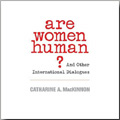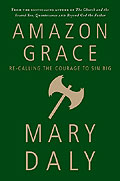I've written before that the Iraq War has worsened terrorism when 87% of the Terrorism Index' bipartisan experts said the war had hurt our national security, not alleviated it despite the misleading edicts of crazy King FUBAR and the propaganda of the GOP.
The Sunday NYTimes confirms the harsh reality with a new National Intelligence Estimate:
A stark assessment of terrorism trends by American intelligence agencies has found that the American invasion and occupation of Iraq has helped spawn a new generation of Islamic radicalism and that the overall terrorist threat has grown since the Sept. 11 attacks.
The classified National Intelligence Estimate attributes a more direct role to the Iraq war in fueling radicalism than that presented either in recent White House documents or in a report released Wednesday by the House Intelligence Committee, according to several officials in Washington involved in preparing the assessment or who have read the final document.
The intelligence estimate, completed in April, is the first formal appraisal of global terrorism by United States intelligence agencies since the Iraq war began, and represents a consensus view of the 16 disparate spy services inside government. Titled “Trends in Global Terrorism: Implications for the United States,’’ it asserts that Islamic radicalism, rather than being in retreat, has metastasized and spread across the globe.
An opening section of the report, “Indicators of the Spread of the Global Jihadist Movement,” cites the Iraq war as a reason for the diffusion of jihad ideology.
The report “says that the Iraq war has made the overall terrorism problem worse,” said one American intelligence official.
More than a dozen United States government officials and outside experts were interviewed for this article, and all spoke only on condition of anonymity because they were discussing a classified intelligence document. The officials included employees of several government agencies, and both supporters and critics of the Bush administration. All of those interviewed had either seen the final version of the document or participated in the creation of earlier drafts. These officials discussed some of the document’s general conclusions but not details, which remain highly classified.
[...]
National Intelligence Estimates are the most authoritative documents that the intelligence community produces on a specific national security issue, and are approved by John D. Negroponte, director of national intelligence. Their conclusions are based on analysis of raw intelligence collected by all of the spy agencies.
[...]
Previous drafts described actions by the United States government that were determined to have stoked the jihad movement, like the indefinite detention of prisoners at Guantánamo Bay and the Abu Ghraib prison abuse scandal, and some policy makers argued that the intelligence estimate should be more focused on specific steps to mitigate the terror threat. It is unclear whether the final draft of the intelligence estimate criticizes individual policies of the United States, but intelligence officials involved in preparing the document said its conclusions were not softened or massaged for political purposes.
Frederick Jones, a White House spokesman, said the White House “played no role in drafting or reviewing the judgments expressed in the National Intelligence Estimate on terrorism.” The estimate’s judgments confirm some predictions of a National Intelligence Council report completed in January 2003, two months before the Iraq invasion. That report stated that the approaching war had the potential to increase support for political Islam worldwide and could increase support for some terrorist objectives.
Documents released by the White House timed to coincide with the fifth anniversary of the Sept. 11 attacks emphasized the successes that the United States had made in dismantling the top tier of Al Qaeda.
“Since the Sept. 11 attacks, America and its allies are safer, but we are not yet safe,” concludes one, a report titled “9/11 Five Years Later: Success and Challenges.” “We have done much to degrade Al Qaeda and its affiliates and to undercut the perceived legitimacy of terrorism.”
That document makes only passing mention of the impact the Iraq war has had on the global jihad movement. “The ongoing fight for freedom in Iraq has been twisted by terrorist propaganda as a rallying cry,” it states.
The report mentions the possibility that Islamic militants who fought in Iraq could return to their home countries, “exacerbating domestic conflicts or fomenting radical ideologies.”
On Wednesday, the Republican-controlled House Intelligence Committee released a more ominous report about the terrorist threat. That assessment, based entirely on unclassified documents, details a growing jihad movement and says, “Al Qaeda leaders wait patiently for the right opportunity to attack.”
[...]
The estimate concludes that the radical Islamic movement has expanded from a core of Qaeda operatives and affiliated groups to include a new class of “self-generating” cells inspired by Al Qaeda’s leadership but without any direct connection to Osama bin Laden or his top lieutenants.
[...]
In early 2005, the National Intelligence Council released a study concluding that Iraq had become the primary training ground for the next generation of terrorists, and that veterans of the Iraq war might ultimately overtake Al Qaeda’s current leadership in the constellation of the global jihad leadership.
[...]
“New jihadist networks and cells, sometimes united by little more than their anti-Western agendas, are increasingly likely to emerge,” said Gen. Michael V. Hayden, during a speech in San Antonio in April, the month that the new estimate was completed. “If this trend continues, threats to the U.S. at home and abroad will become more diverse and that could lead to increasing attacks worldwide,” said the general, who was then Mr. Negroponte’s top deputy and is now director of the Central Intelligence Agency.
For more than two years, there has been tension between the Bush administration and American spy agencies over the violence in Iraq and the prospects for a stable democracy in the country. Some intelligence officials have said the White House has consistently presented a more optimistic picture of the situation in Iraq than justified by intelligence reports from the field.
[...]
The broad judgments of the new intelligence estimate are consistent with assessments of global terrorist threats by American allies and independent terrorism experts.
The panel investigating the London terrorist bombings of July 2005 reported in May that the leaders of Britain’s domestic and international intelligence services, MI5 and MI6, “emphasized to the committee the growing scale of the Islamist terrorist threat.”
More recently, the Council on Global Terrorism, an independent research group of respected terrorism experts, assigned a grade of “D+” to United States efforts over the past five years to combat Islamic extremism. The council concluded that “there is every sign that radicalization in the Muslim world is spreading rather than shrinking.”Republicans sure know how to lie about and exaggerate their national security expertise. I agree with Glenn that this report alone ought to dictate the outcome of the election:
If I were shaping the Democrats' election strategy, I would create a television commercial where someone reads the [first] four paragraphs -- from a new report in the NYT today -- and then I would air it over and over and over every single day as much as possible until November 7.Let me repeat the crux of the NIE report in the NYTimes...
The overall terrorist threat has grown since the Sept. 11 attacks.
The Iraq war has made the overall terrorism problem worse.
The Bush Doctrine has spread terrorism, not diminished the threat.























|